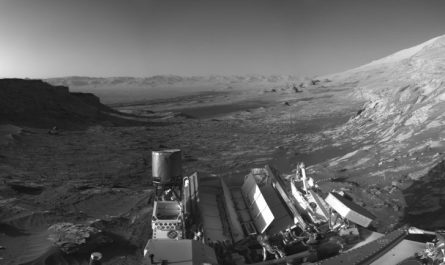
Venus is our nearest planetary neighbor and often dubbed Earth’s twin due to its similar size. However, when it comes to water content, it’s our polar opposite. Venus’s surface is starkly arid, with just a thin layer of water vapor in its atmosphere, in contrast to the vast oceans that cover Earth.
In a study published in Nature, researchers from the Laboratory for Atmospheric and Space Physics (LASP) at Colorado University, Boulder (CU Boulder), have proposed that HCO+ dissociative recombination is the predominant process currently stripping Venus of its hydrogen, and consequently, its water. This finding contradicts some previous theories and provides new insight into Venus’s severe environmental conditions.
A very dry planet
“Water is really important for life,” said Eryn Cangi, LASP research scientist and co-lead author of the paper. “We need to understand the conditions that support liquid water in the universe, and that may have produced the very dry state of Venus today.”

Venus is quite parched. If you spread all of Earth’s water across the second planet from the Sun, it would create a two-mile (three-kilometer) deep layer. Conversely, on Venus, where all the water is in the air, you would wind up with just 1.2 inches (three centimeters), hardly enough to soak your toes.
“Venus has 100,000 times less water than the Earth, even though it’s basically the same size and mass,” said Michael Chaffin, co-lead author of the study and a research scientist at LASP.
Earth’s sister planet wasn’t always so dry. Scientists suspect that billions of years ago during the formation of Venus, the planet received about as much water as Earth. At some point, catastrophe struck. Clouds of carbon dioxide in Venus’ atmosphere kicked off the most powerful greenhouse effect in the solar system. Surface temperatures rose to a roasting 900 degrees Fahrenheit (482 Celsius). In the process, all of Venus’ water evaporated into steam, and most drifted away into space.
However, for some, the ancient evaporation theory doesn’t t fully account for Venus’s current dryness or its ongoing water loss into space.
“As an analogy, say I dumped out the water in my water bottle. There would still be a few droplets left,” Chaffin said.
<!– Tag ID: zmescience_300x250_InContent_3
–>
A big piece in this puzzle
On Venus, however, almost all of those remaining drops also disappeared.
The CU Boulder team utilized advanced computer simulations to understand different chemical reactions on Venus. They discovered that HCO+ dissociative recombination was largely overlooked in past studies but is now recognized as crucial for explaining the current dry state of Venus.
HCO+ dissociative recombination occurs when HCO+ ions (reactive molecules composed of hydrogen, carbon, and oxygen) in the upper atmosphere of Venus interact with electrons, resulting in the molecules breaking apart. This reaction releases hydrogen atoms with enough velocity to escape Venus’ gravitational pull.
“One of the surprising conclusions of this work is that HCO+ should actually be among the most abundant ions in the Venus atmosphere,” Chaffin said.
This research not only provides insights into the atmospheric dynamics of Venus but also has broader implications for understanding water loss in other planetary bodies.
Although these findings are significant, the direct measurement of HCO+ in Venus’s atmosphere remains unattainable due to past mission constraints. The team emphasizes the need for future spacecraft equipped with the right instruments to detect HCO+ ions directly. Upcoming missions like NASA’s Deep Atmosphere Venus Investigation of Noble gases, Chemistry, and Imaging (DAVINCI) mission are poised to delve deeper into the mysteries of Venus’ atmosphere, although they won’t be equipped to detect HCO+.
While DAVINCI lacks the ability to detect HCO+, researchers are optimistic that a forthcoming mission may uncover more about water on Venus.
“There haven’t been many missions to Venus,” Cangi said. “But newly planned missions will leverage decades of collective experience and a flourishing interest in Venus to explore the extremes of planetary atmospheres, evolution and habitability.”
Thanks for your feedback!

